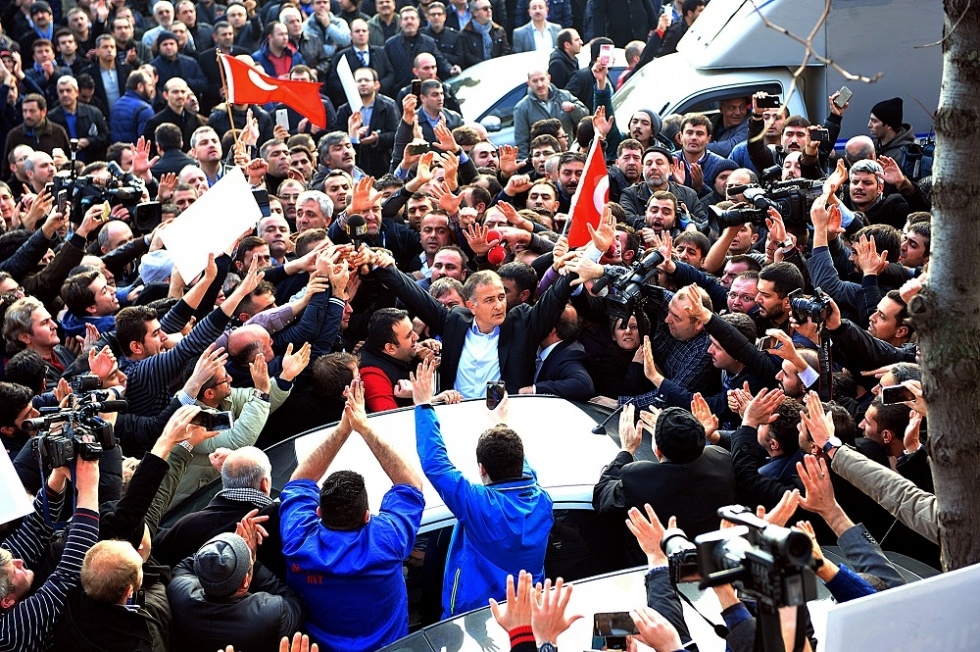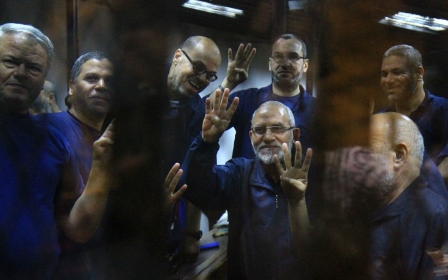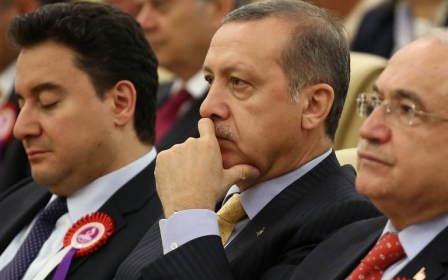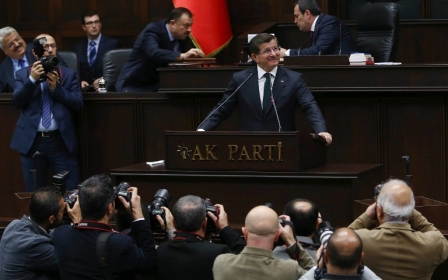Uncertainty surrounds Turkey’s opposition media arrests

The editor-in-chief of Turkey’s largest selling newspaper, along with Hidayet Karaca, the chief executive of Samanyolu - one of the country’s main main TV stations - were being in held in custody along with 21 others on Sunday evening, following a 7 am swoop.
Most of the arrests took place in Istanbul but detentions were also underway in 12 other provinces, with search and detention orders issued against 32 people, after an Istanbul judge signed the orders the day before.
The proposed detainees, however, were well aware of what was about to happen to them and, thanks to their preparations and use of the electronic media and TV, events on Sunday morning unfolded before the eyes of the entire country.
Zaman’s editor, Ekrem Dumanlı, who runs the Gulenist newspaper with an estimated daily last month of 923,000, dodged the police for several hours thanks to a large crowd of supporters. Fearing that the arrests were close, throngs of people had gathered around the Zaman office earlier that morning chanting: “A free press cannot be silenced.”
Eventually Dumanlı handed himself over to police in front of TV cameras. His arrest was observed live, not only by a large crowd of several thousand supporters outside his offices, but also by viewers tuned in online or to several TV stations broadcasting the event.
These bizarre happenings are the latest twist in the year-old war between the AKP government and the Gulen movement, an Islamic brotherhood sometimes accused of “modernism” and pro-Western tendencies.
While its exiled and US-based leader Fethullah Gulen once supported the AKP and its leader, Prime Minister turn President Recep Tayyip Erdogan, relations are now extremely tense.
In their heyday, the Gulenists had a strong following in key areas of government, including the Ministry of Justice and the press. From 2008 onwards, the movement helped underpin the Erdogan government by launching a series of controversial arrests and prosecutions of army officers and Kemalist conservatives for alleged, but improbable, coup attempts.
The joint drive broke the political power of the Turkish Armed Forces and the Kemalists (followers of Turkey’s founding father Mustafa Kemal Ataturk) probably forever.
In November last year, however, relations between the Gulenists (who were powerful in parts of the civil service but had only very subsidiary share of actual power) and the AKP snapped. The government announced that it would shut down the university preparation schools, thus undermining a major Gulenist recruiting ground.
With bridges burnt, two attempted waves to try and prosecute leading AKP figures were launched - included the arrests of the sons of four ministers, on corruption charges. Supporting evidence, in the form of taped conversations allegedly between Erdogan and members of his family, were also soon leaked on to the internet. That was exactly a year ago this week.
If successful, the prosecutions might have brought down the government, but over the next several months Erdogan was able to shake off the challenge, quash the cases and release those arrested as part of the probe.
He also embarked on a particularly hefty legislative spree that saw a host of new laws and administrative measures passed to ensure that the government remained firmly in control. These measures included much tighter control on the appointment of judges and prosecutors and a new law and order packet, or Homeland Security Law, introduced in October, which loosened the requirements for evidence when making an arrest or launching a prosecution.
The reason for such a firm response was simple - Erdogan viewed last December’s prosecutions attempted as not just politically motivated, but actually amounting to a coup attempt and an attack on democracy itself.
Yet the corruption allegations and ensuing crackdown seem to have made no difference to the government’s popularity and strength. In March, the AKP won a resounding majority in local elections and in August, Erdogan was elected president of the republic in the first round, securing 51 percent of the vote.
Erdogan straight after his election to the presidency made it clear that eliminating the Gulenists - to whom he and his ministers refer as “the parallel [state] structure” - would be his main priority.
In recent weeks, however, the government has extended its fierce rhetoric to the opposition parties, claiming (without evidence) that they are also “coupists” in league with the Gulen movement.
On Saturday afternoon, television stations interrupted their scheduled programming to give a five minute extract from a speech by Turkey’s new prime minister, Ahmet Davutoglu, denouncing the opposition Republican People’s Party (CHP) as “coupists”. He linked the alleged treason to the 1960 coup in which 37 young Turkish military officers overthrew the Democratic Party government, which some blamed for allegedly endangering Turkey’s secular traditions and allowing Islam to play too prominent a role in daily life.
This betrayal would not go unpublished, Davutoglu said.
By the time the fiery speech aired though most journalists close to the Gulen movement were already well aware that the arrests were likely coming, having been tipped off by a phantom account on Twitter, said to be a “mole” at the heart of the government.
Yet what happens now is far from certain. Sunday’s police action was made possible by an elastic requirement in the new legislation that detentions need only be “reasonable” rather than based on specific evidence. Bringing the detainees to trial is another matter entirely. It will not only prove more difficult, but will also raise awkward problems, including some possibly internationally embarrassing ramifications.
Moreover, while Turkey’s army trials after 2008 relied, it is widely believed, on concocted evidence of arms dumps and plots, proving that journalists - no matter how oppositional - were involved in a criminal conspiracy to overthrow the government will be much harder.
In previous decades, Turkish governments successively used martial-law courts, then State Security Courts, and finally Special Powers Courts to hold and imprison political dissidents. Thanks to Turkey’s move to join the EU, none of these now exist, although vaguer laws, tighter links with the judiciary, and a more arbitrary climate of government may mean that successful prosecutions can be carried out.
The question now is how much damage to its international reputation is Turkey willing to accept?
Marc Pierini, formerly an EU representative in Turkey, and now a think-tank commentator tweeted on Sunday that “the authorities are derailing the EU [accession] process. The EU may not say much, but markets will.”
So far the markets have taken little notice of political changes in Turkey, but that could change.
Meanwhile Turkish public opinion seems to be unsure how to react to the crackdown.
Secularist reaction has been mixed, with some people relishing the downfall of the Gulenists and the irony that a movement which once, in their view, handed out repression to its opponents and critics, is now facing the same medicine itself.
But Ahmet Sık, an Istanbul investigative journalist who was attacked by the Zaman group in 2011 and held in prison for a year on charges relating to a book he wrote on the Gulen movement, magnanimously wrote in Radikal newspaper today that “the word for what the Gulen community has experienced today is Fascism.”
- David Barchard has worked in Turkey as a journalist, consultant, and university teacher. He writes regularly on Turkish society, politics, and history, and is currently finishing a book on the Ottoman Empire in the 19th century.
The views expressed in this article belong to the author and do not necessarily reflect the editorial policy of Middle East Eye.
Photo Credit: Zaman’s editor, Ekrem Dumanlı, waves to the crowd as he is arrested by Turkey's counter-terrorism police (AFP)
New MEE newsletter: Jerusalem Dispatch
Sign up to get the latest insights and analysis on Israel-Palestine, alongside Turkey Unpacked and other MEE newsletters
Middle East Eye delivers independent and unrivalled coverage and analysis of the Middle East, North Africa and beyond. To learn more about republishing this content and the associated fees, please fill out this form. More about MEE can be found here.





